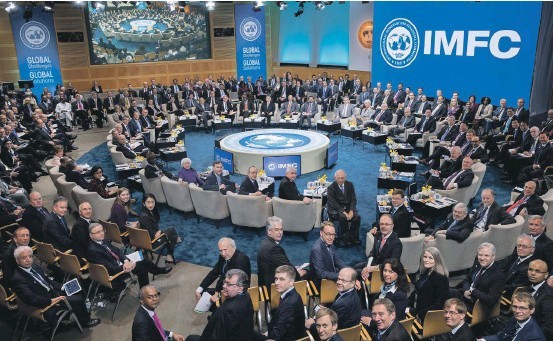IMF Rejects Venezuela’s Request to Fight Coronavirus: Saving Lives is Not a Consideration


Orinoco Tribune – News and opinion pieces about Venezuela and beyond
From Venezuela and made by Venezuelan Chavistas

By Steve Ellner – March 30, 2020
Public opinion surveys indicate that even prior to the outbreak of the coronavirus most Venezuelans favored prioritizing solutions to the nation’s pressing economic problems, as opposed to focusing on political issues. This preference has increased as a result of the coronavirus. In this moment of desperate need, Venezuelans are likely to condemn and long remember the IMF’s rejection of President Maduro’s loan request to help combat the coronavirus scourge. Given the U.S.’s veto power of the Fund’s decision making, the negative response will also add to resentment against Washington world-wide. Already, the European Union has urged the IMF to reconsider its decision with regard to both Venezuela and Iran, while EU’s foreign affairs chief and Spain’s former Foreign Minister Josep Borrell attributed the “very difficult situation” facing both countries mainly “to U.S. sanctions that prevent them from having income by selling their oil.”
RELATED CONTENT: Are the European Union and the UN Willing to Bypass the Blockade Against Venezuela?
A “moderate” faction of the Venezuelan opposition, which in recent months has consolidated itself as a bloc within the National Assembly, supports the need to focus all attention on immediate problems. Claudio Fermín, the main spokesman for the moderates, has stated “no one should obstruct this [loan] request,” adding “it’s the hour of unity.” In contrast, Juan Guaidó has stated that the Maduro government “lacks the capacity” to confront the coronavirus crisis, and calls on the armed forces — as he has in the past — to take control of the nation’s ports and airports to allow for entry of humanitarian aid. By maintaining his insurgent position, Guaidó risks alienating opposition members who support Fermín’s plea for unity and the suspension of political confrontation in the context of what is nothing less than a national emergency.

Steve Ellner is currently an Associate Managing Editor of Latin American Perspectives. He is a retired professor from the Universidad de Oriente in Venezuela where he taught economic history and political science from 1977 to 2003. Among his more than a dozen books on Latin American politics and history is his soon-to-be released edited Latin America’s Pink Tide: Breakthroughs and Shortcomings (Rowman & Littlefield). He has published on the op-ed pages of the New York Times and the Los Angeles Times.